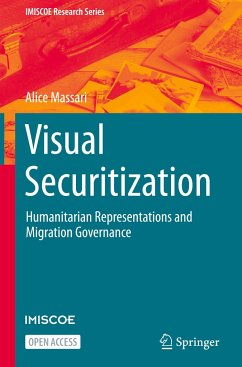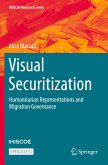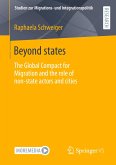This open access book offers an innovative account of how relief organizations' visual depiction of Syrian displacement contributes to reproduce and reinforce a securitized account of refugees. Through visual analysis, the book demonstrates how the securitization process takes place in three different ways. First of all, even if marginally, it occurs through the reproduction of mainstream media and political accounts that have depicted refugees in terms of threats. Secondly, and more consistently, through a representation of Syrian displaced people that, despite the undeniable innovative aesthetic patterns focusing on dignity and empowerment, continue to reinforce a visual narrative around refugees in terms of victimhood and passivity. The reproduction of a securitized account takes also place through the dialectic between what is made visible in the pictures and what is not. At the same time the book identifies visual glimmers and minor displacements in the humanitarian discourse that have the potentiality to produce alternative discourses on refugees and displacement beyond the mainstream securitized ones. By showing how relief organizations' visual representation contributes to the securitization of the refugee issue, this book provides a great resource to students and academics in migration, visuality, humanitarianism and securitization, as well as social scientists and policy-makers.
Bitte wählen Sie Ihr Anliegen aus.
Rechnungen
Retourenschein anfordern
Bestellstatus
Storno








